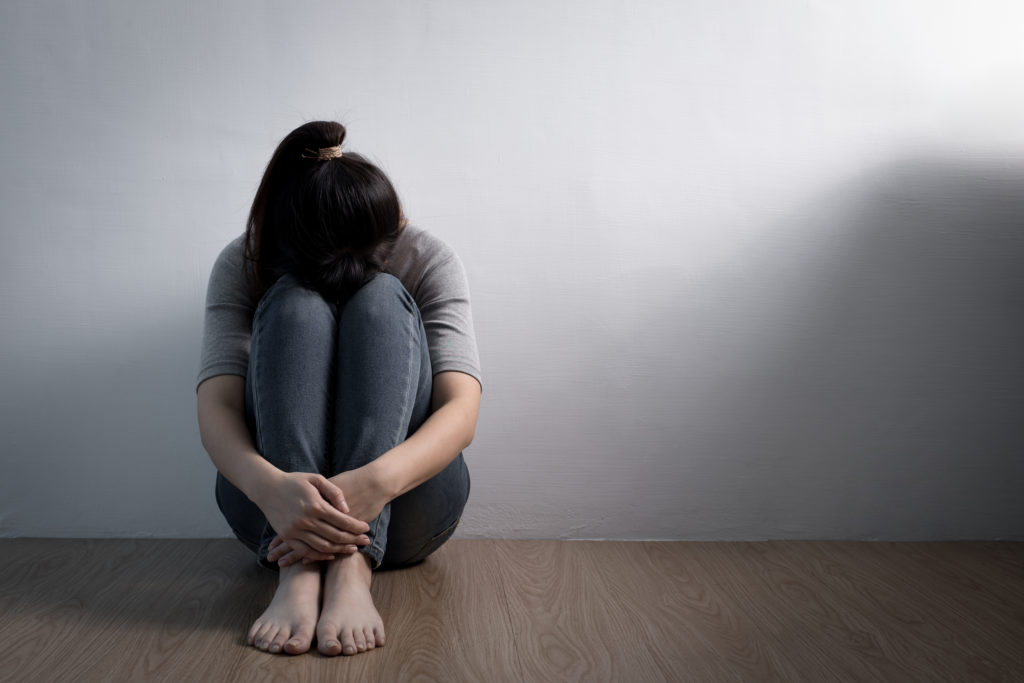A dual diagnosis condition occurs when someone struggles with both addiction and the symptoms of another mental health condition. Dual diagnosis occurs with a higher frequency than many people realize. Data from SAMHSA’s 2019 National Survey on Drug Use and Health indicate that as many as 20% of US adults who struggled with mental illness symptoms also had a co-occurring substance use disorder. In 2018, data shows more than four million people with a substance use disorder experienced a major depressive episode.
It is sometimes difficult to assess the presence of a dual diagnosis because each illness’s symptoms overlap. On their own, depression and addiction are complex and challenging conditions to manage and overcome. When their symptoms combine, achieving recovery is even more complicated. Learning to manage and overcome symptoms is a vital step towards lasting wellness.
What are the Signs of Depression?
Depression is one of the most prevalent mental disorders in the United States. Estimates suggest that over sixteen million adults over age eighteen experienced at least one major depressive episode in the last twelve months. Understanding depression and its signs and symptoms is vital to know when you or a loved one may need help to overcome difficult emotions safely and in a healthy way.
The signs and symptoms of depression differ from person to person and are based on your specific diagnosis. While some people may struggle with mild symptoms that do not resolve on their own, others suffer from deep, overwhelming bouts of sadness that can seem crippling. Major depression is a mental health condition where one experiences a depressed mood throughout the day, occurring almost every day for two weeks or more. While depression may look different in each person, there are common signs of depression to watch for. Examples include:
- Persistent feelings of hopelessness, sadness, or emptiness
- Anger, irritability, and frequent mood swings.
- Excessive guilt or feelings of worthlessness
- Decreased energy and increased fatigue
- Loss of interest in activities or hobbies
- Difficulties sleeping, concentrating, or being attentive
- Changes in appetite or eating patterns
- Muscle and joint pains (without an apparent medical reason)
Can Depression Cause Addiction?
Does depression cause addiction? Or does addiction cause depression? Depression and addiction often present together, and therefore it can be challenging to determine which one to treat first. The Substance Abuse and Mental Health Services Administration estimates that approximately nine million adults have mental health and substance abuse problems.
As noted above, it is not uncommon for those experiencing depression to reach for substances to numb the pain or improve their mood. Unfortunately, this leads to a situation where substances are required to achieve continued happiness. Without using substances such as drugs or alcohol, depression symptoms inevitably worsen.
Another relationship between addiction and depression occurs during withdrawal. The process of withdrawing from some substances can intensify preexisting or co-existing mental illness symptoms. In some cases, withdrawal symptoms coupled with symptoms related to a depressive disorder can be so intense and unmanageable that it can lead to self-harm or suicide. For this reason, it is essential not only to treat mental illnesses and substance use disorders at the same time but to ensure treatment occurs in a safe, supported space like our women’s rehab at Casa Serena.
How Can Dual Diagnosis Rehab Help with Major Depressive Disorder?
You can expect a multifaceted treatment program at a dual diagnosis treatment program. A dual diagnosis treatment program generally begins with an assessment followed by detox (if needed), therapy, and aftercare planning. An evaluation is essential to positive treatment outcomes as it provides your treatment team with a clearer picture of your current physical and emotional health. It also helps providers better understand your relationship with substances, both past, and present.
The second step in dual diagnosis treatment is typically detox. Depending on your unique treatment needs, detox may take days or weeks. During detox, you can focus on cleansing your system of toxic substances while our skilled, knowledgeable team members provide continual physical and mental health support.
After detox, you will transition into the therapeutic portion of a treatment program. A comprehensive therapy program developed around your specific symptoms can help you understand and overcome the emotions and triggers that often lead to major depression symptoms and self-medication with substances. Without dual diagnosis treatment that thoroughly addresses both conditions, depression symptoms can return quickly, followed by using substances to manage their complications.If you or a loved one experiences dual diagnosis symptoms (like major depression and addiction), seeking dual diagnosis treatment is vital to recovery. Treatment of any kind can help you begin your journey towards recovery. However, not all treatment programs provide the care and support needed to overcome a dual diagnosis. Therefore it is vital to find one like our women’s program where healing and recovery can begin.



